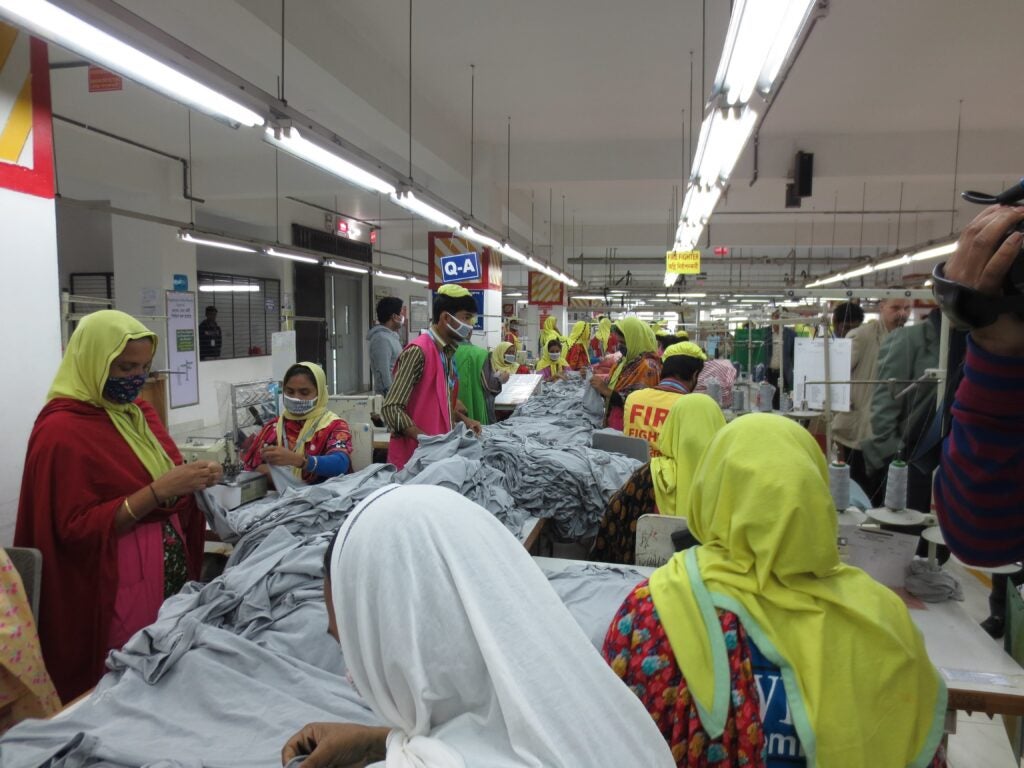Major fashion brands have diverted production orders from Bangladesh to neighbouring countries following the fall of authoritarian leader Sheikh Hasina. Interim leader Muhamad Yunus, has said the most urgent tasks were restoring freedom of speech and the “independence of the judiciary.”
Suppliers to global brands have been affected by a wave of retaliatory attacks for being owned by regime loyalists. Factories producing for H&M and Zara were among those torched.
The decision comes amid calls from garment unions for support, given the economic importance of the garment industry for Bangladesh.
The supply chain tumbles
During the protests and ensuing repression, an estimated 500 people died. There were curfews, arrests and violence on the streets for weeks.
Police are just starting to come out of hiding, as they feared being targeted for participating in the repression of protesters. Student volunteers and the military have been taking up their tasks, such as directing traffic and patrolling neighbourhoods.
In the meantime, factories had to close for days, which created a huge backlog. They have tried to make up for this by working overtime and delivering products by air, a costly alternative.
Mamun Rashid, an adviser to the textile industry in the country, said “factories received calls from Spanish buyers, German buyers: ‘For the time being, we’re diverting 40% of our orders to Cambodia and Indonesia.”
While Yunus is a popular figure at home and was chosen by the students at the helm of the protests, the initial enthusiasm is not assured to last.
Experts are debating how long Yunus should stay at the helm before calling for elections. Opinions range from just a few months to up to a year.
Meeting targets
The lack of certainty has shaken the confidence of brands who are aiming to meet their targets consistently.
Syed Nasim Manzur, the manager of a footwear company that supplies to French retailer Decathlon and Uniqlo's Japanese parent company, says that “large groups are saying they’ll reduce their sourcing by 30% for next season.”
Whether these reductions will be long term is still debatable. The country’s large workforce and existing infrastructure for the textile industry will make it hard to replace, according to executives.
Unions call for patience
Amid this uncertainty, UNI Global Union and IndustriALL have called on 200 fashion brands to maintain their operations in Bangladesh.
In a letter addressed to signatories of the International Accord, the unions' factory safety programme in the country, union leaders emphasized the importance of the garment sector in lifting workers out of poverty.









